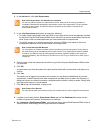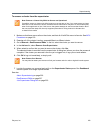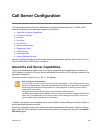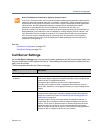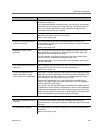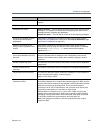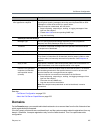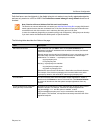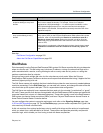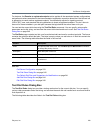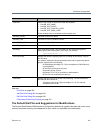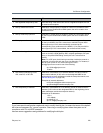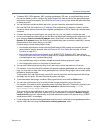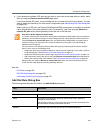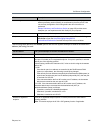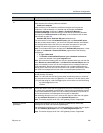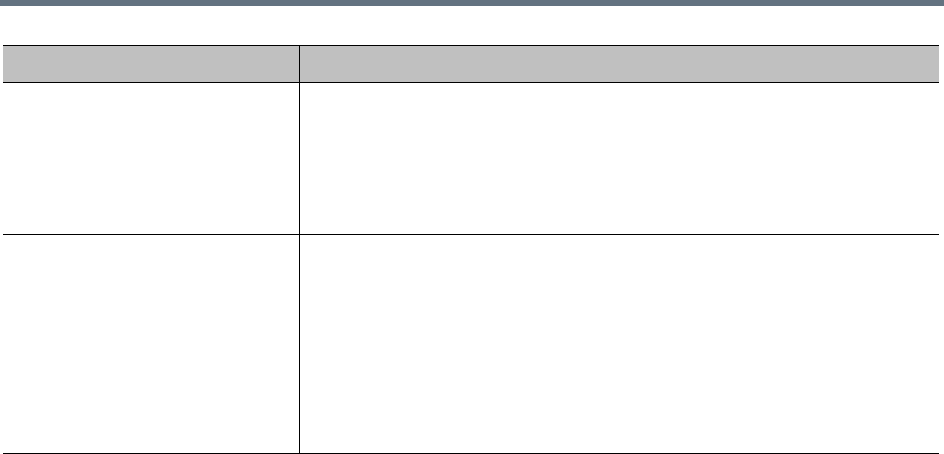
Call Server Configuration
Polycom, Inc. 239
See also:
Call Server Configuration on page 233
About the Call Server Capabilities on page 233
Dial Rules
Dial rules specify how the Polycom RealPresence DMA system Call Server uses the dial string to determine
where to route the call. This dial string may include an IP address, a string of numbers that begin with a
prefix associated with a service, a string that begins with a country code and city code, or a string that
matches a particular alias for a device.
Dial strings may match multiple dial rules, but the rules have a priority order. When the Polycom
RealPresence DMA system Call Server receives a call request and associated dial string, it applies the first
matched (highest priority) dial rule.
The Call Server comes with a default dial plan installed that provides the most commonly needed address
resolution processing. On the Dial Rules page, you can add, edit, remove, and change the order of the dial
rules that make up the system’s dial plan. This is a supercluster-wide configuration.
The Call Server can optionally have a separate dial plan used only for untrusted (“unauthorized” or “guest”)
SIP calls. These are calls from devices not registered with the RealPresence DMA system and outside the
corporate firewall (but not part of a federated enterprise). These calls typically come to the RealPresence
DMA system via session border controllers (SBCs) such as a Polycom RealPresence Access Director or
Acme Packet Session Border Controller device.
You can configure the system to recognize and accept such calls on the Signaling Settings page (see
H.323 and SIP Signaling on page 72). On the Dial Rules page, you can create a separate set of “guest” dial
rules used only for these untrusted calls.
A dial rule consists of an optional preliminary script to modify dial strings and the action to be performed,
which you select from a well-defined list of actions. These actions encapsulate potentially complex dial
resolution logic, which shields you from having to deal with these complexities.
Email IDs of registered H.323
endpoints belong to every local
domain
Specifies that call requests for locally registered H.323 endpoints’ email IDs
don’t have to match the domain. For example, if there is an endpoint
registered as ‘h323:johnsmith@1.1.1.1’ and this option is enabled, a call to
'h323:johnsmith@mycompany.com’ may be connected to that endpoint.
If this option is not selected, call requests must exactly match the URI of the
registered endpoint.
Conference rooms and virtual
entry queues belong to every
domain
Specifies that if the dial string specifies a conference room (VMR) or virtual
entry queue (VEQ) on the Polycom RealPresence DMA system and includes
a domain, a dial rule implementing the Resolve to conference room ID or
Resolve to virtual entry queue actions (such as dial rule #2 or #3 of the
default dial plan) ignores the domain and routes the call to that conference
room or VEQ.
If this option is not selected, a dial string that includes a domain doesn’t match
a Resolve to conference room ID or Resolve to virtual entry queue dial
rule.
Field Description



